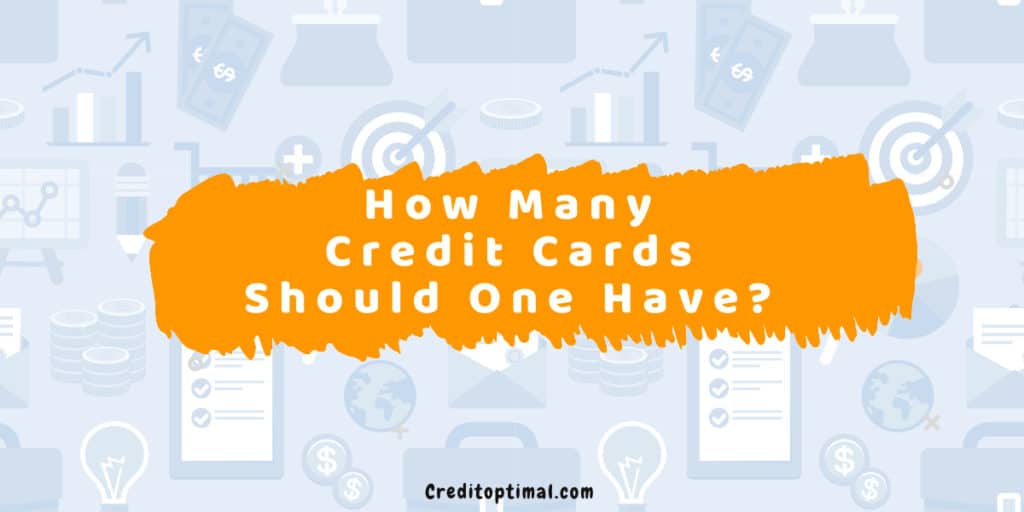What’s the ideal number of credit cards to own? Well, it all comes down to your needs and preferences. depends on your personal situation. However, there are some general guidelines that you can follow in order to make get the most out of it. In this blog post, we will discuss how many credit cards are the right amount for most people, as well as some of the benefits and drawbacks of having multiple credit cards.
What exactly is a credit card?
A credit card is a bank card that gives the holder a line of credit with which they can use for purchases. Simply put, a credit card is a way to get simple loans that you will need to pay back with interest.
To own a credit card, your credit ratings should be without blemishes. Meaning you are faithful with other people’s money and you live up to your word. On top, it also shows you don’t have much debt.
If you do not have good credit, you may still be able to get a credit card, but it will likely have a lower credit limit and a higher interest rate.
There are many benefits to having a credit card, such as being able to build your credit history, having a backup source of funds in case of an emergency, and getting rewards or cashback on your purchases.
However, there are also some drawbacks to having a credit card, such as the temptation to overspend, the possibility of accumulating debt, and the fees and interest that come with borrowing money.
How do credit cards work?
Credit cards allow you to borrow short-term loans from a bank or financial institution. You can use the funds to purchase essential goods and services or to cover unexpected expenses.
Monthly, you will need to make a base pay on your credit card balance. This minimum payment will usually be a certain percentage of your overall balance, plus any interest and fees that have accrued.
If you only pay the bare minimum, your credit card debt may linger for longer than expected and your will interest rates may end up being higher.
Keep in mind that this is not free money. Every coin borrowed must be returned and with interest in due time.
If you do not repay your credit card debt, your credit score will suffer and you may be charged late fees. In extreme cases, your credit card company may involve debt collectors.
When should you use a credit card?
You should use a credit card only when it’s absolutely necessary. When your cash reserves are low and the purchases are a necessity. For example, if you need to book a hotel room but do not have the money to pay for it upfront, you can use a credit card to cover the cost.
If you feel like owning a credit card will boost your credit ratings, go for one After all, a credit rating reflects on your efforts to take and repay loans. So, get a card, make only necessary transactions, and repay in time. Your credit ratings will raise.
When you use a credit card responsibly (i.e., make on-time payments and keep your balances low), it will reflect positively on your credit score. This, in turn, help get approvals for loans in the future a breeze.
What to consider before having a credit card
There are a few things you should consider before getting your first credit card, such as whether or not you can trust yourself to use it responsibly.
Your spending habits
Credit cards can be a trap for people who have a hard time controlling their spending. If you are the type of person who tends to overspend when you use credit, it may be best to avoid getting a card.
Your income and employment status
Another thing to consider before getting a credit card is if you have a job and how much you’re making. If you are not currently employed or if your income is not very stable, you may not be able to qualify for a credit card or you may only be approved for a card with a very low limit.
Your financial goals
Before getting a credit card, you should also think about your financial goals. If you are trying to save money or pay off debt, using a credit card can be counterintuitive to those goals.
Credit card application process
Most banks and financial institutions will require you to go through a credit card application process before approving you for a card. Most application processes are online though some banks may require in-person visits.
During the application process, they will ask your bio which includes; your employment, income, and credit history. The bank or financial institution will use this information to decide if you are eligible for a credit card and how much credit they are willing to extend to you.
This process usually includes a credit check, which is used to determine your creditworthiness.
People with little or no credit history occasionally get a credit card, but only for those with small limits.
Once they determine your credit ratings, the financial institution will either approve or deny your application.
Upon getting the card, you will be assigned a debt limit. This is the topmost amount of money that you can borrow using the card. Simply put, that’s your credit ceiling.
Your credit limit will depend on factors like your income, employment situation, and credit history.
If your credit limit is healthy, avoid using the maximum. In fact, doing so can damage your credit ratings.
It is important to keep your balances low and make on-time payments in order to maintain a good credit score.
Are business credit cards worth it?
When running a business separating business and personal expenses is a must. This can help with organization and tracking of expenditure.
It can also make it easier to get approved for loans and other lines of credit because lenders will be able to see that you are good at managing your finances.
Business credit cards can also come with some great perks, such as cashback or rewards points.
If you are thinking about getting a business credit card, make sure to do your research and compare different cards to find the one that is right for your business.
How many credit cards should one own?
The number of credit cards at your disposal is not as important as how you use them. If you are able to use credit responsibly, you can have as many cards as you want.
Why you should own many credit cards
Having many cards comes with its perks. They include:
Rewards programs
For starters, you can hop on the rewards that come with them.
Some credit cards offer cashback or points for everything you spend on. The points gained can be used to counterbalance future purchases or expenses. Having multiple cards increases the number of rewards you can earn.
Emergency fund
Having more than one card is perfect for an emergency fund.
Acquiring more cards is the perfect backup if you misplace one of your cards. You will also have a source of funds at your disposal should need arise.
Build your credit ratings faster
Additionally, having multiple credit cards is a good catalyst for improving your credit ratings faster. This is because each new credit card will crop up in the credit report.
Longer credit history is generally seen as a positive by lenders, so having multiple cards can help you qualify for loans and get better interest rates in the future.
Downsides of having multiple credit cards
Of course, there are also some downsides to having many credit cards. They include;
Difficulty keeping track of balances
One downside to having multiple credit cards is that it can be difficult to keep track of your balances.
If you have a lot of cards, neglecting one over the other is easy. This can lead to missed payments and damage your credit score. In fact, it’s easy to find people with multiple cards building spreadsheets to help keep track of it all!
Higher risk of debt
Another downside to having multiple credit cards is that it can increase your risk of getting into debt. It’s important to note that each balance you carry will be charged interest rates. This can quickly run out of control and debt will become unbearable. Debt addiction is a real thing, and it can be easy to fall into the trap of using credit to make ends meet.
Studies show that in America, the average Gen Z person has a debt of $8,215 with the total amount of credit card debt in the USA reaching a staggering $357.04 billion. That’s a lot of credit card debt!
Before you decide how many credit cards to get, it’s important to consider both the benefits and the risks. Weigh your options and make a decision that is right for you. And remember, even if you have multiple cards, always pay your bills on time and keep your balances low to avoid getting into more debt.
Increased temptation to spend
It’s a no-brainer that more credit cards can tempt one to spend more.
When you have a lot of credit available to you, it can be easy to overspend and get into debt If you are not careful, this can lead to financial problems down the road.
Is having one credit card the solution?
Some argue that the solution to the problems associated with multiple credit cards is to have just one.
While this may work for some people, it is not a one-shoe-fits-all.
For example, if you travel often, getting more cards can be advantageous. This is because you have more rewards programs available.
Benefits of having a one credit card
That being said, having just one card does have some benefits.
Keep track of your spending
It can be easier to keep track of your spending and stay within your budget if you only have one card. Since it’s only one card, you only have one balance to keep track of.
This can be helpful if you are working on getting out of debt or trying to stick to a budget.
One bill to pay
Another benefit of having just one credit card is that you reduce your monthly bills. Tracking your expenditure thus becomes an easy affair.
More rewards
Yes, you heard that right. Having one credit card can increase your rewards. You can earn more rewards by using it for all of your purchases. This is due to the fact that most rewards programs give you more points for using their card more often.
Keep your spending in check
You are less likely to overspend if you only have one card. That’s a fact.
When you have multiple cards, it can be easy to rack up debt without realizing it. This is because you are using different cards for different purchases and it can be hard to keep track of how much you are spending.
Paying monthly balances is straightforward
If you only have one card, it will be easier to pay off the monthly dues. This is because you condense all the payments into one.
Additionally, if you have a lower balance, your interest charges will be low which is advantageous.
Bottom Line
So, what’s the best number of cards to own? It ultimately goes to what you prefer. Consider the pros and cons of having multiple credit cards before making a decision. And always remember to use your credit.
There is no right or wrong answer. Having many or just one card is okay as long as it serves the purpose. The number of cards you have depends on your individual financial situation. And keep in mind that it’s easier to get a card than to repay a loan.


